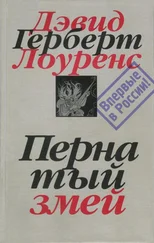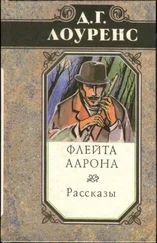Дэвид Лоуренс - Sons and Lovers
Здесь есть возможность читать онлайн «Дэвид Лоуренс - Sons and Lovers» весь текст электронной книги совершенно бесплатно (целиком полную версию без сокращений). В некоторых случаях можно слушать аудио, скачать через торрент в формате fb2 и присутствует краткое содержание. Жанр: Старинная литература, на английском языке. Описание произведения, (предисловие) а так же отзывы посетителей доступны на портале библиотеки ЛибКат.
- Название:Sons and Lovers
- Автор:
- Жанр:
- Год:неизвестен
- ISBN:нет данных
- Рейтинг книги:3 / 5. Голосов: 1
-
Избранное:Добавить в избранное
- Отзывы:
-
Ваша оценка:
- 60
- 1
- 2
- 3
- 4
- 5
Sons and Lovers: краткое содержание, описание и аннотация
Предлагаем к чтению аннотацию, описание, краткое содержание или предисловие (зависит от того, что написал сам автор книги «Sons and Lovers»). Если вы не нашли необходимую информацию о книге — напишите в комментариях, мы постараемся отыскать её.
Sons and Lovers — читать онлайн бесплатно полную книгу (весь текст) целиком
Ниже представлен текст книги, разбитый по страницам. Система сохранения места последней прочитанной страницы, позволяет с удобством читать онлайн бесплатно книгу «Sons and Lovers», без необходимости каждый раз заново искать на чём Вы остановились. Поставьте закладку, и сможете в любой момент перейти на страницу, на которой закончили чтение.
Интервал:
Закладка:
In the reaction towards restoring his self-esteem, he went into the Willow Tree for a drink. There were four girls who had been out for the day, drinking a modest glass of port. They had some chocolates on the table. Paul sat near with his whisky. He noticed the girls whispering and nudging. Presently one, a bonny dark hussy, leaned to him and said:
“Have a chocolate?”
The others laughed loudly at her impudence.
“All right,” said Paul. “Give me a hard one—nut. I don’t like creams.
“Here you are then,” said the girl; “here’s an almond for you.”
She held the sweet between her fingers. He opened his mouth. She popped it in, and blushed.
“You are nice!” he said.
“Well,” she answered, “we thought you looked overcast, and they dared me offer you a chocolate.”
“I don’t mind if I have another—another sort,” he said.
And presently they were all laughing together.
It was nine o’clock when he got home, falling dark. He entered the house in silence. His mother, who had been waiting, rose anxiously.
“I told her,” he said.
“I’m glad,” replied the mother, with great relief.
He hung up his cap wearily.
“I said we’d have done altogether,” he said.
“That’s right, my son,” said the mother. “It’s hard for her now, but best in the long run. I know. You weren’t suited for her.”
He laughed shakily as he sat down.
“I’ve had such a lark with some girls in a pub,” he said.
His mother looked at him. He had forgotten Miriam now. He told her about the girls in the Willow Tree. Mrs. Morel looked at him. It seemed unreal, his gaiety. At the back of it was too much horror and misery.
“Now have some supper,” she said very gently.
Afterwards he said wistfully:
“She never thought she’d have me, mother, not from the first, and so she’s not disappointed.”
“I’m afraid,” said his mother, “she doesn’t give up hopes of you yet.”
“No,” he said, “perhaps not.”
“You’ll find it’s better to have done,” she said.
“I don’t know,” he said desperately.
“Well, leave her alone,” replied his mother.
So he left her, and she was alone. Very few people cared for her, and she for very few people. She remained alone with herself, waiting.
12
Passion
HE WAS gradually making it possible to earn a livelihood by his art. Liberty’s had taken several of his painted designs on various stuffs, and he could sell designs for embroideries, for altar-cloths, and similar things, in one or two places. It was not very much he made at present, but he might extend it. He had also made friends with the designer for a pottery firm, and was gaining some knowledge of his new acquaintance’s art. The applied arts interested him very much. At the same time he laboured slowly at his pictures. He loved to paint large figures, full of light, but not merely made up of lights and cast shadows, like the impressionists; rather definite figures that had a certain luminous quality, like some of Michael Angelo’s people. And these he fitted into a landscape, in what he thought true proportion. He worked a great deal from memory, using everybody he knew. He believed firmly in his work, that it was good and valuable. In spite of fits of depression, shrinking, everything, he believed in his work.
He was twenty-four when he said his first confident thing to his mother.
“Mother,” he said, “I s’ll make a painter that they’ll attend to.”
She sniffed in her quaint fashion. It was like a half-pleased shrug of the shoulders.
“Very well, my boy, we’ll see,” she said.
“You shall see, my pigeon! You see if you’re not swanky one of these days!”
“I’m quite content, my boy,” she smiled.
“But you’ll have to alter. Look at you with Minnie!”
Minnie was the small servant, a girl of fourteen.
“And what about Minnie?” asked Mrs. Morel, with dignity.
“I heard her this morning: ‘Eh, Mrs. Morel! I was going to do that,’ when you went out in the rain for some coal,” he said. “That looks a lot like your being able to manage servants!”
“Well, it was only the child’s niceness,” said Mrs. Morel.
“And you apologising to her: ‘You can’t do two things at once, can you?’”
“She was busy washing up,” replied Mrs. Morel.
“And what did she say? ‘It could easy have waited a bit. Now look how your feet paddle!’ ”
“Yes—brazen young baggage!” said Mrs. Morel, smiling.
He looked at his mother, laughing. She was quite warm and rosy again with love of him. It seemed as if all the sunshine were on her for a moment. He continued his work gladly. She seemed so well when she was happy that he forgot her grey hair.
And that year she went with him to the Isle of Wight for a holiday. It was too exciting for them both, and too beautiful. Mrs. Morel was full of joy and wonder. But he would have her walk with him more than she was able. She had a bad fainting bout. So grey her face was, so blue her mouth! It was agony to him. He felt as if someone were pushing a knife in his chest. Then she was better again, and he forgot. But the anxiety remained inside him, like a wound that did not close.
After leaving Miriam he went almost straight to Clara. On the Monday following the day of the rupture he went down to the work-room. She looked up at him and smiled. They had grown very intimate unawares. She saw a new brightness about him.
“Well, Queen of Sheba!” he said, laughing.
“But why?” she asked.
“I think it suits you. You’ve got a new frock on.”
She flushed, asking:
“And what of it?”
“Suits you—awfully! I could design you a dress.”
“How would it be?”
He stood in front of her, his eyes glittering as he expounded. He kept her eyes fixed with his. Then suddenly he took hold of her. She half-started back. He drew the stuff of her blouse tighter, smoothed it over her breast.
“More so !” he explained.
But they were both of them flaming with blushes, and immediately he ran away. He had touched her. His whole body was quivering with the sensation.
There was already a sort of secret understanding between them. The next evening he went to the cinematograph with her for a few minutes before train-time. As they sat, he saw her hand lying near him. For some moments he dared not touch it. The pictures danced and dithered. Then he took her hand in his. It was large and firm; it filled his grasp. He held it fast. She neither moved nor made any sign. When they came out his train was due. He hesitated.
“Good-night,” she said. He darted away across the road.
The next day he came again, talking to her. She was rather superior with him.
“Shall we go a walk on Monday?” he asked.
She turned her face aside.
“Shall you tell Miriam?” she replied sarcastically.
“I have broken off with her,” he said.
“When?”
“Last Sunday.”
“You quarrelled?”
“No! I had made up my mind. I told her quite definitely I should consider myself free.”
Clara did not answer, and he returned to his work. She was so quiet and so superb!
On the Saturday evening he asked her to come and drink coffee with him in a restaurant, meeting him after work was over. She came, looking very reserved and very distant. He had three-quarters of an hour to train-time.
“We will walk a little while,” he said.
She agreed, and they went past the Castle into the Park. He was afraid of her. She walked moodily at his side, with a kind of resentful, reluctant, angry walk. He was afraid to take her hand.
Читать дальшеИнтервал:
Закладка:
Похожие книги на «Sons and Lovers»
Представляем Вашему вниманию похожие книги на «Sons and Lovers» списком для выбора. Мы отобрали схожую по названию и смыслу литературу в надежде предоставить читателям больше вариантов отыскать новые, интересные, ещё непрочитанные произведения.
Обсуждение, отзывы о книге «Sons and Lovers» и просто собственные мнения читателей. Оставьте ваши комментарии, напишите, что Вы думаете о произведении, его смысле или главных героях. Укажите что конкретно понравилось, а что нет, и почему Вы так считаете.









